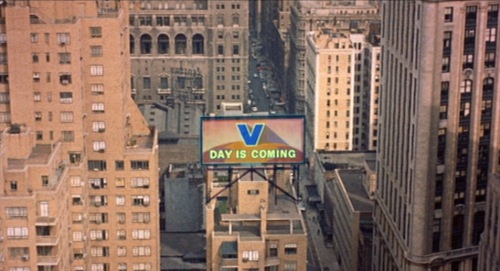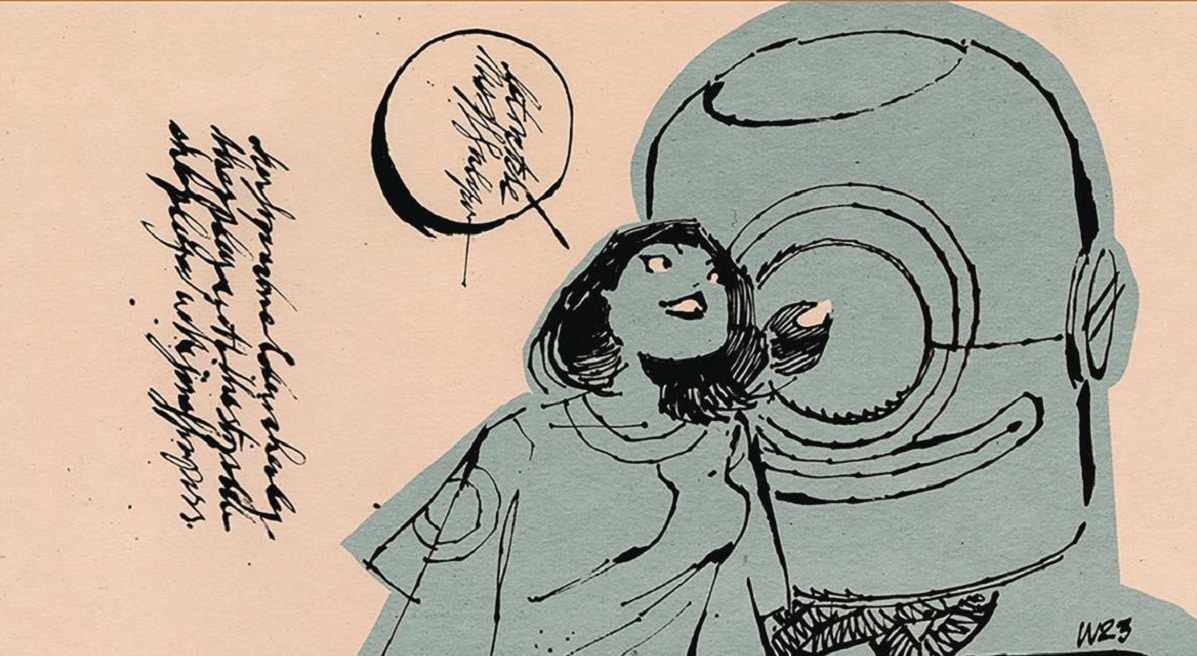It’s been about a year since we covered the launch of The Bonfire Agency, an ad agency devoted to respectful and appropriate branding to the geek market, as well as market research and consulting on industry mainstays including the CBLDF and New York Comic Con. In talking to founders Steve Rotterdam and Ed Catto a year ago, it was evident that they not only had advertising matters on their mind, but also blank spots in the industry, such as getting more demographic information and helping publishers monetize via an ad network.
As 2012 dawns, Bonfire has just made a new hire, Kris Longo who joins the firm as Vice-President, Advertising Sales & Business Development following a stint at DC Comics as Manager of Advertising and Custom Publishing. At Bonfire Longo will be majorly involved with ComicsUnited, an ad network for non Big-Two comics publishers that will sell ads across books from a number of publishers.
We thought it would be a good time to briefly catch up with Rotterdam and Catto and find out a little about how Longo will be approaching his new position.
The Beat: How has marketing to the nerd segment changed in the year since Bonfire launched? Biggest lessons learned?
Steve Rotterdam: Nerds! They’re everywhere! Seriously though, the membrane between what we’ll call here “geek culture” and “mainstream culture” has continued to get thinner and thinner. There’s less reluctance than ever for members of our core “geek” demographic to identify themselves as such in terms of the things they’re passionate about and the products and brands they identify with. And it is a segment that is growing, though not to the benefit of every product category.
Ed Catto: We’ve won. And that’s a big deal. You see it with TV and movies, you see it with digital apps, and even commercials (Volkswagen’s Darth Vader spot made all the industry top ten lists). You see it with society’s acceptance. Nerd culture no longer sits in a corner hiding from the rest of society. Now Nerd Culture has come to mean the thought leaders who develop entertainment, start trends, end trends, facilitate communication and do it all with a forward-looking sense of enthusiasm.
Rotterdam: One trend that we didn’t expect to see though is that while the demo has grown and our consumers have stepped further out into direct sunlight, females within the segment seem to be spinning off somewhat. They’re still there, mind you, and it doesn’t mean that they’re any less important to publishers, retailers or brands — but from our interviews and surveys among members of the demographic, what was once all geek appears to be segmenting into “geek” and “girl geek.” As lamentable as that may sound, it’s not necessarily a bad thing for brands and marketers seeking to make genuine inroads into our community.
Catto: Lessons learned? Truthfully, we thought we’d have to explain Bonfire’s mission better to the world at large. But we typically say “we’re here to help brands and companies connect with passionate fan communities in respectful, meaningful ways”. And then people nod very quickly and say, “I get it.” Then they always give their own examples of why Bonfire’s reason for being is an idea whose time has come.
Rotterdam: Another lesson, not quite fully learned? No matter how big your mouth is, be careful to not bite off more than you can chew. We hit the ground running as soon as we opened our doors a year ago and it’s been non-stop ever since. We’ve started a LOT of fires in terms of projects and business initiatives and we’ve been blessed to have had a full-service agency supporting us in Eastwest Marketing Group, as well as colleagues like Martha Donato, Ivan Cohen, the folks at ComicsPRO and Diamond and studios like Space Goat Productions to help us see things through. Our plates are always full.
The Beat: Launching as mostly a two-man shop, you’ve now added Kris Longo as VP of Advertising Sales & Business Development. What is his portfolio at Bonfire?
Rotterdam: Just to be clear, while it’s usually been two guys doing all the talking, Martha Donato has been an important strategic resource for Bonfire since the beginning and continues in that capacity.
Catto: And over the course of both our careers, within the bubble of the comics industry and in the larger advertising world, we’ve been fortunate to work with so many of the best and the brightest. It’s been very rewarding to reach into our contact lists over the last year to partnered — or re-partnered — with talented designers, researchers, account managers and other experts who understand the world of the passionate fan as well as they do marketing.
Rotterdam: Kris is a perfect example. He was brought on because he knows this space so well from so many different angles and because, frankly, he’s a blast to work with. While he’ll work closely with Ed and myself, as well as the leadership of Eastwest, on new business opportunities, his main area of responsibility will be running ComicsUnited, one of three “business units” we established early on, the one that’s essentially an ad network for the leading independent comic book publishers.
That may come across to the layman as “getting ads in the books,” but it’s much more complicated than that and requires a much greater degree of finesse and innovative thinking. It means leveraging comics — publishers, characters, creators, readers, events — to help advertisers ranging from video games and cable networks to toothpaste brands and adult beverages deepen their connections to our hyper-passionate consumer base and all the other demographic groups they influence. It requires an understanding of how print, online and digital can and must work together to create meaningful programs that benefit the industry as much as they do brands. It requires a genuine appreciation of and respect for the ways in which comics are distributed and for the people on the front lines of that retail experience. And it requires real knowledge as to what our readership is all about. None of that comes easy. But in Kris, having worked with him as part of my team at DC, we’ve got someone who gets it on all fronts.
The Beat: Kris, I’ll ask you what I asked Steve a year ago: what are some of the things you’re most mindful of in going from a large corporation to a boutique agency?
Kris Longo: I had an extraordinary run at DC and, as a sales guy, my ability to interest a potential advertiser or partner into meeting me cold was certainly enhanced by the wow-factor of the iconic characters we represented. But while these characters had the ability to open doors in many cases, it was my job to not get them slammed in my face.
With ComicsUnited, we won’t necessarily enjoy the same immediate gut reaction from the ad community, but over the last 3-5 years the foundation for this network’s success has been laid. WANTED was an early breakthrough. THE WALKING DEAD is now a water cooler brand. But, moreover, the willingness and enthusiasm of the publishers we have the honor of representing to work with advertisers in leveraging compelling content in ways that are truly relevant to our diverse audience positions us as a scrappy but viable alternative to the two giants.
In general, I’ve been embracing something Ed Catto casually said to me over a cup of coffee recently — it’s like moving from a luxury cruise liner to a more nimble pirate ship!
The Beat: Kris, what kind of evolution have you seen in advertiser acceptance of comics as an advertising medium?
Longo: When I started doing this many years ago, it was a vastly different world. Seeing major brands in comic books — even the more endemic brands — was still something of a novelty. There was an overall hesitancy about swimming in our waters because we carried what was then a less than fashionable geek stigma, and most brands lived or died by a cool factor. But as the medium evolved and the entertainment and licensing worlds began to embrace a variety of comic properties, it began to change. The smartest influencers in media, in my opinion, are the ones who actually listen to or are part of the demographic group that they are attempting to service, and when their kids/nephews/siblings began to read comics, the fear factor began to slip away. Today it’s a much easier activation, and I’ve been fortunate to be in a position where agencies will actually reach out to me to better understand how to authentically and effectively engage the comic culture audience.
The Beat: Bonfire launched with ideas for some potentially industry changing projects. Can you give us an idea of how some of them are faring?
Rotterdam: And now that the months of development are over and Kris is on board to take it on the road, I would say ComicsUnited is faring fine. But we won’t be satisfied in the slightest until our partner publishers begin to realize revenue from the enterprise.
Our in-store retailer promotional network is next to come on line. Christened “Store Corps” because we just couldn’t agree on a name we liked better, it was introduced to some of the best, most progressive comics retailers in the country at last year’s ComicsPRO meeting in Dallas. The response was tremendous and all of the retailers that expressed interest in being a part of the network — one that compensates them with cash for supporting relevant brand-sponsored in-store promotions — have been extremely patient as we’ve spent a good chunk of our time since then meeting with brands and event agencies to line up some test programs. More on that at this year’s ComicsPRO meeting.
The Beat: Likewise, I know you’ve been working on the “Fan Pan” for marketing information.
Catto: Yes. Our “FanPan” consumer research panel is up and running! We’re still recruiting our first batch of 350 members of our core demographic, but we’ve been reaching out to the current membership on a regular basis to glean insights and test assumptions for a number of projects we’ve undertaken.
The Beat: Two topics on the Beat that I’ve been covering of late that I would love to get your take on. One is the increasing “Nerdization” of television, or as I call it, the Big Bang Effect. We’re going to see a bunch of pilots and TV shows set in nerd world — from the Kevin Smith comics shop show to a larping reality show. How do you see the “Nerd Brand” evolving?
Catto: Last July I was laid up after surgery and watched on television how the rest of the country saw San Diego Comic-Con. Some pieces were of the “what a bunch of goofballs these fans are” variety, but not many. I was able to see how nerd culture is evolving to become the sub-culture of cool people who know what they like, are knowledgeable and passionate, and aren’t afraid to enjoy what they enjoy.
Rotterdam: You allude to The Big Bang Theory and we reference the show a lot in our conversations with brands and agencies. But we emphasize that the audience we’re talking about is not just these four nerds – it’s these four nerds AND Penny! The spheres of influence are expanding and they’re coming from inside our community! Are we as “special” and distinct as we once were? Honestly, no. But are members of our community walking a little taller and strutting a little prouder? Yes. And that’s great.
The Beat: Another topic The Beat has been discussing is the amount of actual market research that huge advertisers spend — I used the example of Ikea figuring out how to get women to buy more furniture by targeting harmonious visions of people living in cluttered spaces. A lot of consumers are just now aware of how much clinical psychology advertisers have knowledge of to get them to buy beer. Are there any of these case studies that you think are relevant to nerd culture?
Rotterdam: Market research and consumer psychology are nothing new. They’re tried and true tools of us “gentle persuaders” and have been for over 60 years, if not longer. Most people today are quick to cite Mad Man as an example, but I’d refer you to “Lover Come Back,” a great Doris Day-Rock Hudson comedy that chronicles the development of a campaign for Vip, a product that happens not to exist.
While I was at DC, I went on record as to how unfortunate I thought it was that, apart from some advertising-related studies, we had no true qualitative or quantitative market research to help us understand our readership better. I’m glad to see that, in the afterglow of the launch of The New 52, that position has shifted somewhat. What DC plans on doing with that data, I don’t know, but I’m glad it’s being pursued.
Catto: Marketers need to understand data in order to better forecast results, change course and plan for the future. The good news is that ours is a community filled with smart people already analyzing and sharing their thoughts on a consistent basis. And that’s everything from the latest issue of a comic, to business challenges like the digitization of content and the economics of running a shop, to rumors swirling around management and talent changes within the industry. I think this is what happens naturally when you combine smart people who share deep passions.
But you asked if any case studies are relevant to nerd culture. I’d argue that all of them are relevant. That’s because nerd culture isn’t the only group that we all belong to. We’re oftentimes thought leaders in new technologies and early adopters in new media. We read comics AND drive cars. We’re into sci-fi films AND consume soft drinks. We love trading card games AND might also be heavy users in the tortilla chip category (I know I am, regrettably).
Rotterdam: Another piece of the puzzle is that younger consumers are comfortable with being marketed to. They understand that’s part of society. If a brand does it poorly or without respect, they’ll call them out on it. It’s not a stretch to note that “youthful” is so much of what geekdom is about. So in general, we feel that yes, there’s a lot of research going on, but geek culture has a “bring it on” attitude.
The Beat: Any other projects at the Bonfire Agency that we should be aware of?
Rotterdam: Too many, probably. But one thing that we’re most excited about — and were totally caught off guard by when we launched — is the opportunity to work with creators who’ve approached us to help them secure brand sponsors for their own works, particularly in the digital space. It’s an area that fell to the back burner as we became so preoccupied with “larger” projects, but it’s something that we’re very anxious to get back to — and we’ll be bringing on some experienced editorial talent to help us make some things happen here.
Catto: Everything takes time to be crafted well.








Great acquisition! You guys are moving and shaking!
I’m sure Kris will help make 2012 a great year!